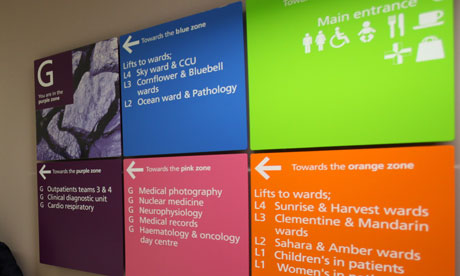
The deaths of two women shortly after giving birth have raised questions about the safety of care at an NHS hospital with the largest maternity unit in the country.
Violet Stephens died at Queen's hospital in Romford, Essex, in April, just one month after a review by the care watchdog said Queen's was failing to meet essential maternity standards.
An independent investigation into Stephens's death, seen by the Guardian, reveals that she saw at least 30 healthcare staff in the last three days of her life, including five consultant obstetricians, 11 junior doctors and 12 midwives.
She was known to be at risk – two previous babies had been delivered by caesarean section because of complications linked to high-blood pressure – but she did not get the standard of care to which she was entitled, says the report. "The number and extent of service provision weaknesses revealed by this investigation casts doubt on the organisational integrity of the maternity services," it says.
Stephens's death followed that of Sareena Ali in January. Ali, who was having her first baby, had a heart attack caused by a ruptured womb. She had been left without a midwife for two hours.
While the Care Quality Commission (CQC) inspectors were in the maternity unit – failing it on six safety standards – Ali was lying on a life support machine in another part of the hospital. The CQC officers were not told.
Queen's, which is part of Barking, Havering and Redbridge NHS foundation trust, says it is doing all it can to improve maternity care. But Sarah Harman, the solicitor representing the families of the two women, as well as about 20 less serious complaints, said: "On the basis of all the cases coming forward to me, this is a maternity department that is not providing safe care."
Averil Dongworth, the trust's chief executive, apologised on Wednesday for failings in the standard of care given to the two women. She said: "Our hospitals deliver nearly 10,000 babies each year, and it is our highest priority to ensure each woman receives the highest standard of care in this important moment in their lives.
"I am so sorry that both Violet Stephens and Sareena Ali did not receive the standard of care they were entitled to expect, and I am determined to address problems we identified in their care, so that other women can be confident about our maternity service in the future.
"We commissioned an investigation into their deaths so we can learn lessons from them and take action to make sure our maternity service is safe and that every woman can have the best possible experience of childbirth.
"These actions have included recruiting an extra 72 midwives this year, improved staff support and training, and new guidelines to safeguard women who need to have their labour induced or who are experiencing complications. We have ensured we have one of the highest levels of specialist doctor coverage of any maternity unit in the country.
"These changes are part of a comprehensive action plan to improve our maternity service across the board and make sure every woman can have a good experience of childbirth in the safest possible environment.
"In the past we have not always got that right for every individual woman but lessons have been learned and changes made.
"We've welcomed the work of the Care Quality Commission to identify which further improvements we need to make, and have been working incredibly hard with local women and staff to ensure these are delivered."
The CQC report in March demanded immediate improvements to ensure the safety of women giving birth at Queen's, warning that it was short-staffed, midwives were under-skilled and some equipment did not work.
Queen's responded that it was hiring 49 more midwives, half of whom had already been recruited. But the independent inquiry into Stephens's death, dated July, suggested there were still fundamentalproblems in the maternity unit when she died.
The independent "serious untoward incident" inquiry into her death, carried out by a professor of complex obstetrics and a senior midwife, found that Stephens had suffered severe pre-eclampsia in her fourth pregnancy, as she had in her earlier ones. Pre-eclampsia is one of the most common conditions that kill women in childbirth. In Stephens's case it became particularly serious because her liver was affected.
The report found her case was not well managed and there were delays in giving her a caesarean and blood transfusions. In the antenatal clinic, she saw six doctors and midwives. In the last three days at Queen's, no fewer than 30 healthcare staff were involved. It is well-documented, said the report, that the more handovers of information and responsibility there are, the greater the risks for the patient.
"The tragedy at the centre of this investigation is the death of a mother, which most profoundly affects her family, friends and the three motherless children left behind."
The report found evidence of good care, kind staff and effective working but "significant factors were identified which prevented VS from receiving the standard of care she was entitled to expect and to which the trust aspires".
A further review of services by the CQC will report in a few weeks.

